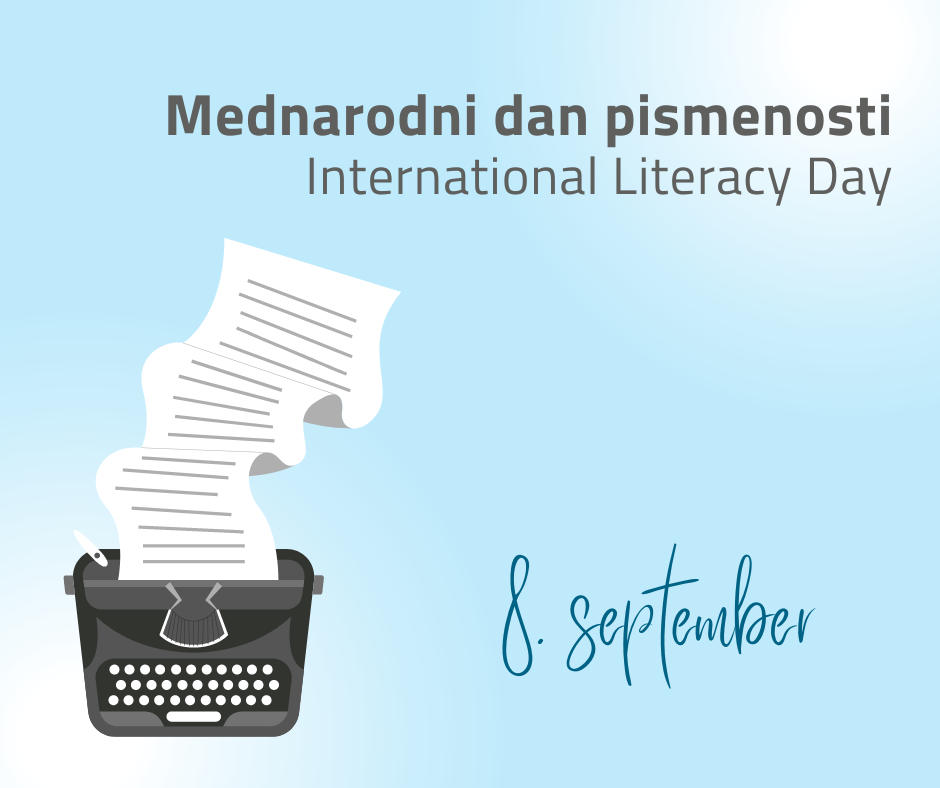Literacy is the ability to read and write, and according to UNESCO terminology, the ability to understand everyday messages. On its website, UNESCO states that in 2020, at least 763 million young people and adults worldwide were illiterate, two thirds of them women. It is almost incomprehensible that in the 21st century, in an age of advanced technologies that have drastically changed the way we live and perceive the world around us, almost 10% of the world's population is still illiterate.
The emergence of writing systems...
The earliest writing systems began to appear around 5500 years ago. Interestingly, full writing systems appear to have been invented independently in at least four different areas (first in Mesopotamia during 3400-3300 BC, then in Egypt at around 3200 BC, followed by China during 1300 BC, and among the ancient American civilisations during 900-600 BC). (Clayton, n.d.)
Although the first writing system was developed so early, it was not until the introduction of compulsory schooling in the 18th century that literacy in Slovenia began to lose its status as a skill of a privileged minority, as only 3% of the population was believed to be literate at that time. Since then, the literacy rate in Slovenia has risen steeply, and in 1991 only 0.46% of the population aged 15 and over was still illiterate. Due to the extremely low proportion of illiterates, literacy was no longer included in subsequent national censuses.
Today, we talk about different types of literacy (functional, mathematical, digital, computer, media, information, cultural, health, ecological, etc.), among which we want to highlight functional literacy. Functional literacy consists of reading and writing skills, as well as reading comprehension and the ability to apply the acquired information in everyday life, whether for learning or for work tasks. A person should, for example, be able to read a newspaper, successfully read a bus timetable, read the weather forecast, manage household expenses, etc.
While the problem of general literacy is significantly smaller today than in the past, there has been a growing concern about functional illiteracy in recent years. Research, development, and education in the field of literacy in Slovenia is the primary focus of The Slovenian Institute for Adult Education. A survey carried out in 2016 found that adults in Slovenia are well below the OECD average. As many as one third of 16-65 year olds (around 400 000 adults) have difficulties with reading, writing and simple arithmetic in their daily lives. They can only read short, simple texts and solve mathematical problems with basic arithmetic operations. As opposed to total illiteracy, people can hide their functional illiteracy to a certain extent and manage to cope with it despite the difficulties it causes them.
Functional literacy is vital for success, as it has a significant impact on human potential and the development of key competences for adults in today's fast-paced technological society. Low functional literacy represents a major barrier to career progression or in acquiring additional skills, therefore it is essential to invest in better functional literacy for adults. A society can only thrive with successful individuals.
International Literacy Day is celebrated on 8 September...
September 8th was proclaimed as International Literacy Day by UNESCO in 1966. The proclamation was intended to remind the public of the importance of literacy for human dignity and of literacy as a basic human right. Despite the progress made, literacy challenges persist for nearly 770 million illiterate people worldwide, the majority of whom are women, who still lack the basic skills of reading and writing and are therefore especially vulnerable.
This year's International Literacy Day is celebrated under the theme “Promoting literacy for a world in transition: Building the foundation for sustainable and peaceful societies", highlighting the role of literacy in the development of a more inclusive, peaceful, just, and sustainable society.
University of Maribor is aware of the extensive meaning of literacy...
At the University of Maribor, we are aware of the importance of student-centred teaching and learning together with the associated learning environment and modern teaching methods that incorporate information and communication technologies, which contribute to better academic performance, as well as to increased functional literacy. The latter is also promoted through the UM Pedagogical Network, which brings together higher education teachers, lecturers, and faculty assistants of the University of Maribor, with the primary goal to establish a safe environment for strengthening integration, mutual support, and exchange of experiences during the pedagogical process at UM. A quality educational experience contributes to the upgrading and improvement of literacy skills throughout the course of studies, which is facilitated by a suitably qualified and motivated pedagogical staff. At the same time, important care and attention must be paid to the most vulnerable groups, who are at higher risk of not achieving adequate levels of literacy.
Furthermore, the University of Maribor provides additional opportunities for education and the acquisition of competences and skills that are indispensable in modern society, such as advanced training programmes, summer schools, courses, and workshops. At the same time, the Career Centre of the University of Maribor supports the career development of its graduates during their studies.
As part of the Recovery and Resilience Plan for the period 2022-2025, the University of Maribor has launched a pilot project called Agile Development of Education and Micro-Credentials, in which the newly established Center for Lifelong Learning at the University of Maribor has taken an active role in creating an environment for agile development of education and micro-credentials at the University of Maribor and in preparing guidelines for the development of lifelong learning at the University of Maribor. You can find out more about it on the website moja.um.si > After-Study Opportunities > Lifelong Learning.
____________________
Clayton, E. (n.d.). Where did writing begin? Bl.uk. https://www.bl.uk/history-of-writing/articles/where-did-writing-begin
Javrh, P. (2011). Obrazi pismenosti: Spoznanja o razvoju pismenosti odraslih. Ljubljana: Andragoški center Slovenije.
